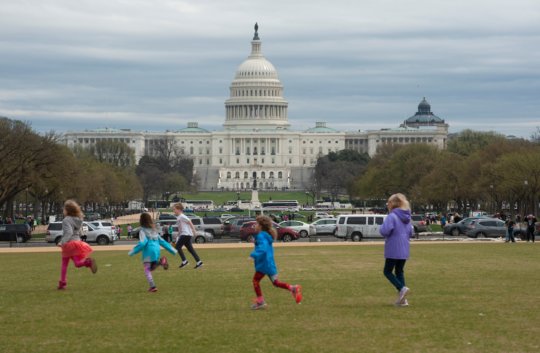Comprehensive Primary Prevention Agenda for the Biden-Harris Administration
On January 20, 2021, President-elect Joe Biden will be sworn in as our nation’s 46th president, and Vice President-elect Kamala Harris will make history as the first Black and Indian American and the first woman to serve as vice president. This period of transition to new leadership will take place among a global pandemic and crisis for far too many families. Providing primary prevention strategies, such as voluntary evidence-based home visiting, increasing the economic supports to families, and strengthening family and parent support programs, can reduce the stress that families across the nation are under in these challenging times. If we act now, we’ll make sure that children and families can keep moving forward, even during this difficult time.

Children have tremendous potential—which our society needs— and which we have a shared obligation to nurture and protect. The research is clear that investing in families and providing prenatal and early childhood support improves birth outcomes, child development and educational achievement, and reduces premature mortality, mental illness, violent crime, substance abuse and addiction, and child abuse and neglect.
Injury and violence—spanning from drug overdoses, child abuse and neglect, domestic violence, and many other events— affect people in all stages and from all walks of life and are a critical public health threat to all Americans. Victims of injury and violence suffer physical, mental, and/or emotional health consequences, and society bears its share of the burden through medical expenses, foster care, and work loss costs.
Adverse childhood experiences (ACEs) are traumatic events that occur in childhood. ACEs can include violence, abuse, and growing up in a family with mental health or substance misuse problems. Preventing ACEs could reduce a large number of health conditions:
- Up to 21 million cases of depression
- Up to 1.9 million cases of heart disease
- Up to 2.5 million cases of overweight/obesity
At least 5 of the top 10 leading causes of death are associated with ACEs and are among the top killers for Americans. Indisputably, the future of America depends on what we do for our children today.
We know that injuries and violence share many underlying causes. To better understand and address these relationships, several federal agencies play unique roles in supporting research, as well as developing and disseminating evidence-based programs to prevent injury and violence, including:
- Centers for Disease Control and Prevention (CDC)
- Health Resources and Services Administration (HRSA)
- Administration for Children and Families (ACF)
- Substance Abuse and Mental Health Services Administration (SAMHSA)
- Department of Education
- Department of Housing and Urban Development
- Department of Labor
There is a major opportunity for these departments and agencies to work collaboratively with coordinated strategies to prevent injury and violence from occurring in the first place. The recommendations contained in this document address the various needs of existing programs and propose new efforts across the federal government that work to prevent injury and violence. The investments noted are intended to meet the demand that exists to address injury and violence. PCA America is looking forward to working with the Biden-Harris administration to accomplish these critical priorities.





